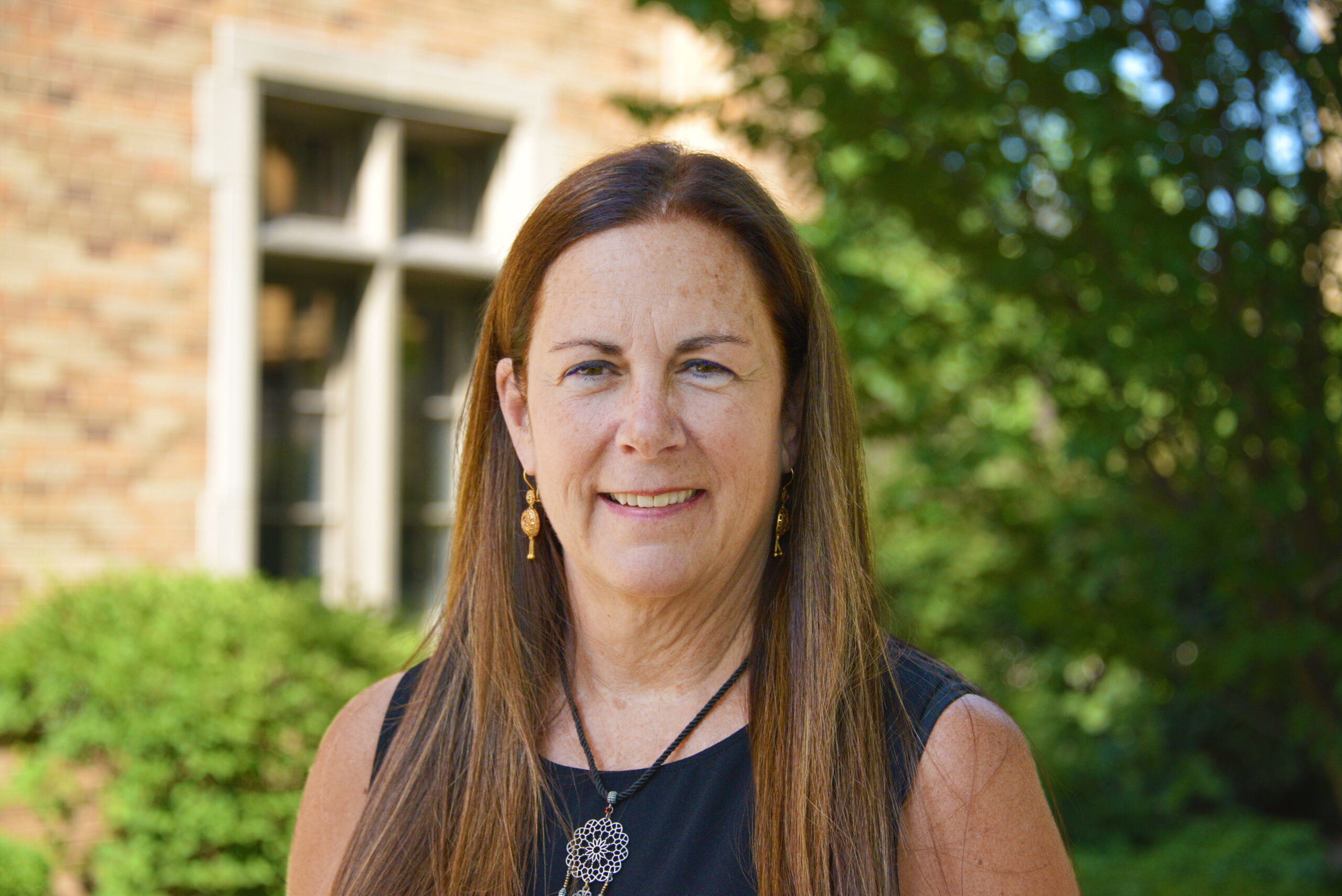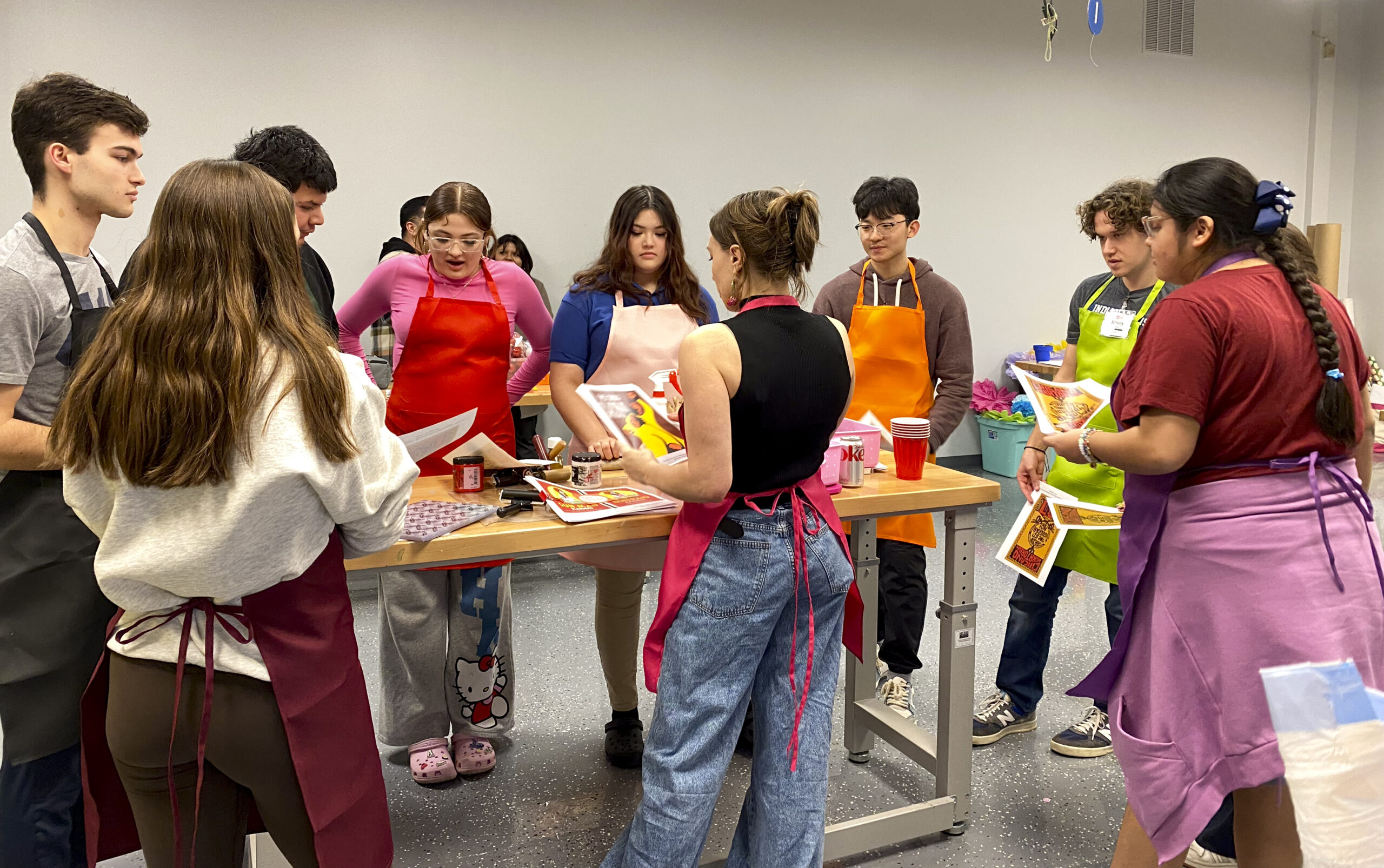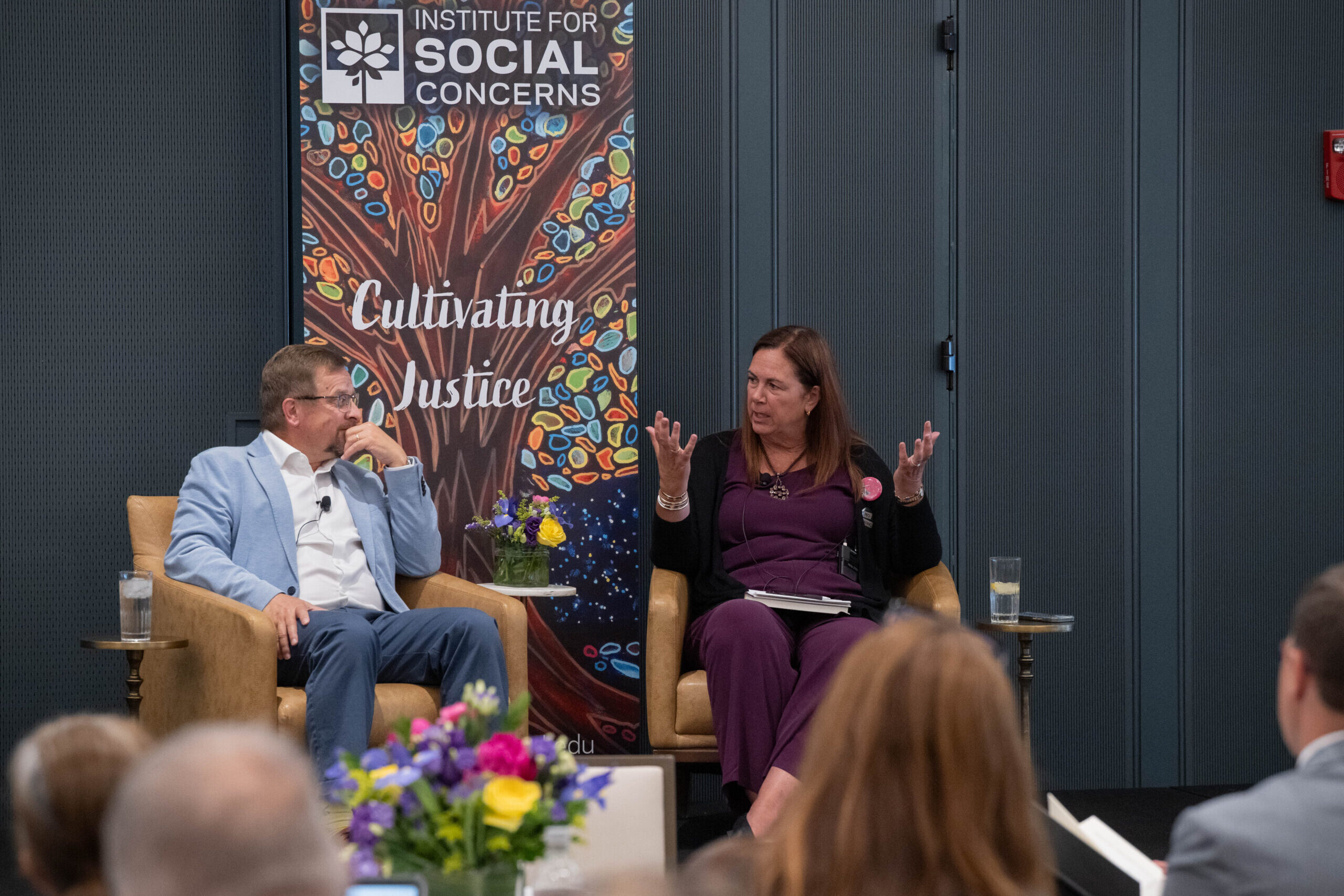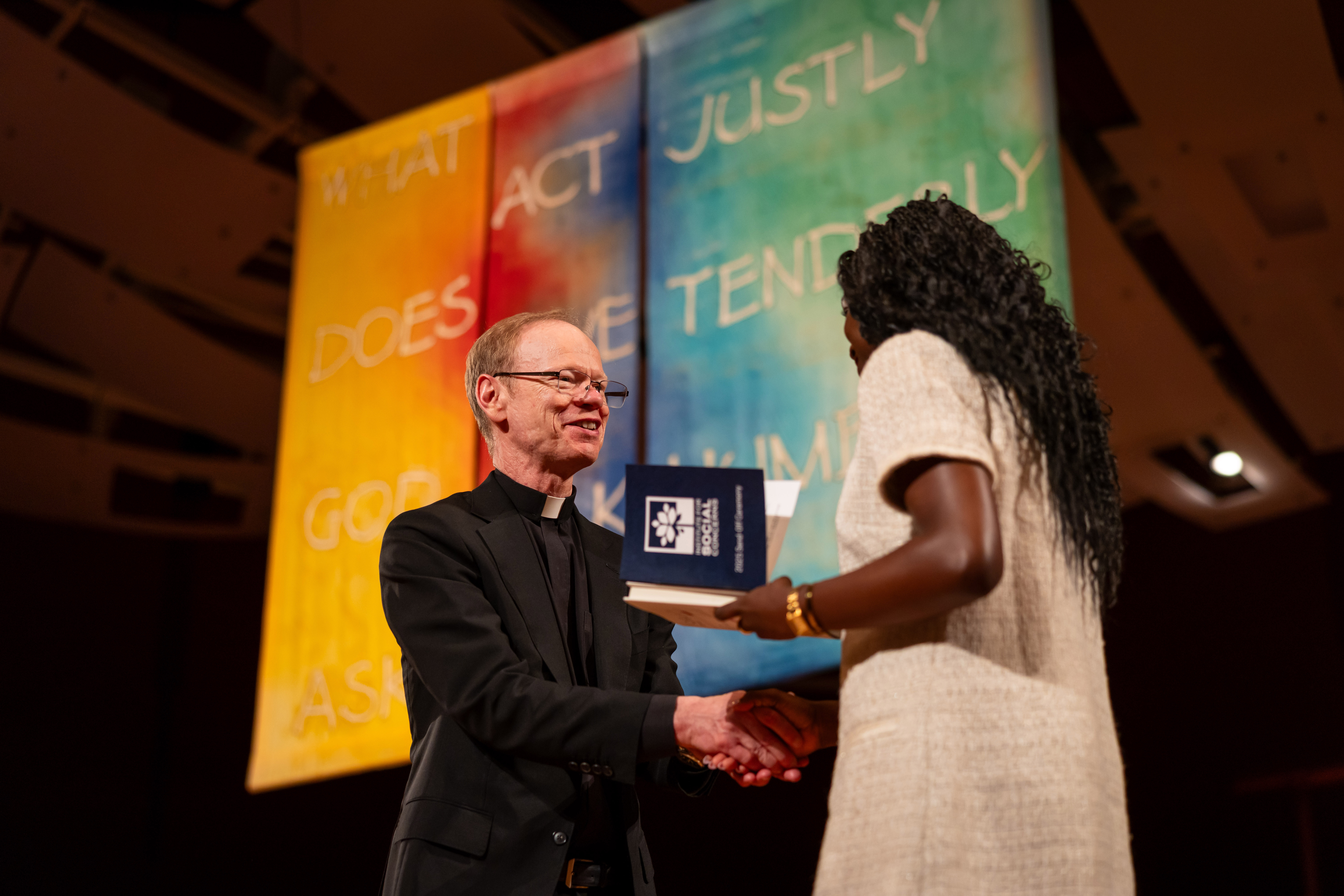Students develop scholarly tools at second annual Graduate Institute for Engaged Teaching and Research
November 21, 2023
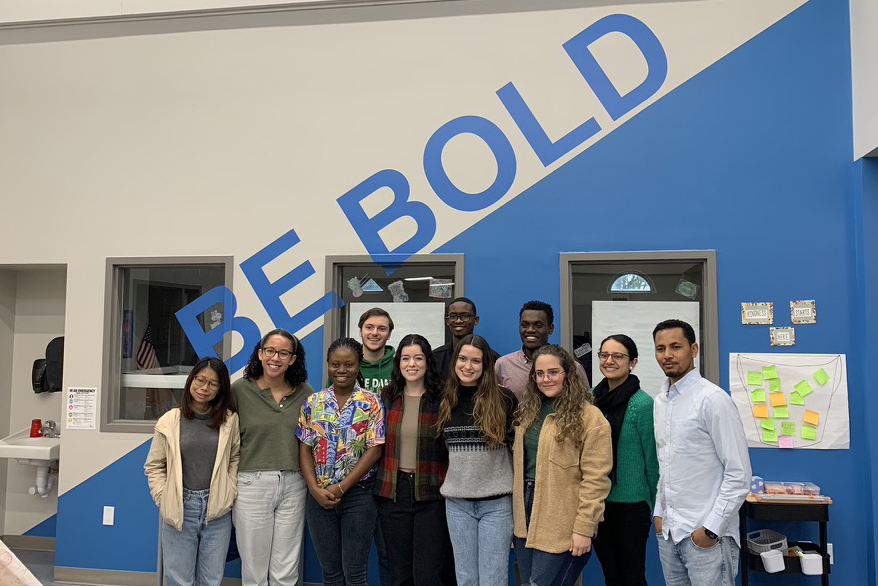
The Institute for Social Concerns hosted the second annual Graduate Institute for Engaged Teaching and Research during fall break, bringing together Notre Dame graduate students from a variety of fields to further develop their scholarly tools for addressing issues of justice.
The 14 students who participated in the institute hail from 11 countries and come from various academic disciplines, including law, architecture, global affairs, fine arts, and biology. Over the course of three days, they explored principles and effective models of public scholarship and community engagement through a mix of workshops, guided reflection, and dialogue with community and academic leaders.
Students said the institute opened horizons to new ideas and project possibilities, energized them to be involved in the local community while at Notre Dame, and motivated them to collaborate with each other further.
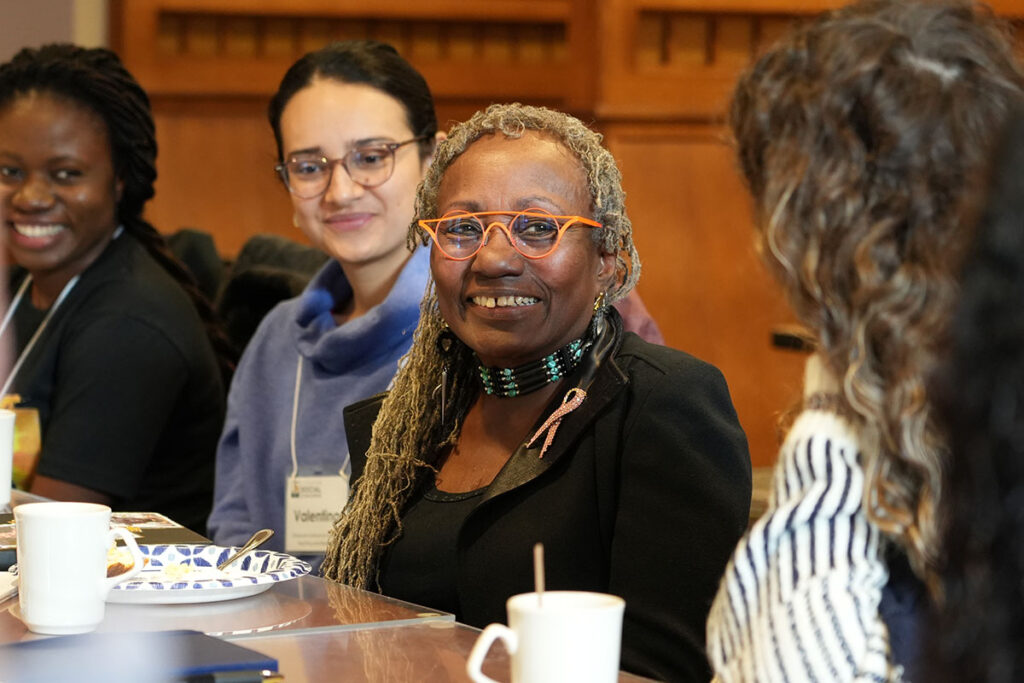
“The institute brought together students from all academic backgrounds to engage with the community of South Bend and beyond, which generated beautiful discussions and highlighted the incredible work that is being done in the area,” said Vannesa Campuzano Villalobos, a first-year master of global affairs student. “Change does not happen in a vacuum, and this experience demonstrated the crucial role community engagement, peacebuilding, and restorative justice can play in eliciting meaningful change.”
Valentina del Sol Salazar Rivera, a Colombian lawyer who is pursuing an LL.M. in International Human Rights Law, said the institute had a big impact on her personally and professionally.
“It was an opportunity to reflect on my journey in and outside Notre Dame and to reconnect with fundamental questions about my role as a woman, neighbor, and lawyer,” she said. “The discussions helped me realize the importance of being more intentional about the competencies that I want to gain during my academic program considering the areas in which I want to work in the future.”
Giuliana Mello, a master of global affairs student from Brazil, said the institute was an opportunity to reconnect with her goals and priorities.
“In grad school oftentimes we get so caught up in readings and deadlines and grades that we lose sight of the things that brought us here in the first place,” Mello said. “Working with the local community is a very important aspect of my work ethic and personal fulfillment, so this opportunity really helped ground me and connect with the things that matter to me.”
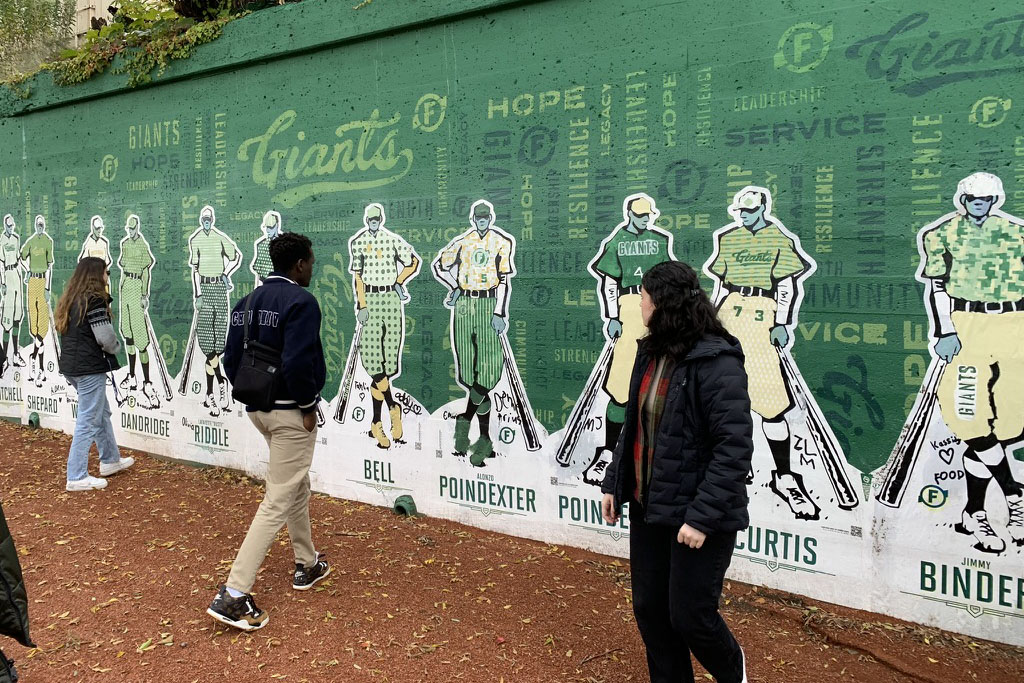
The students had firsthand encounters through conversations with community leaders at the Pokagon Band of Potawatomi Peacemaking Center in Michigan, the Foundry Field murals at the Boys & Girls Clubs of St. Joseph County, and the Indiana Women’s Prison in Indianapolis. The prison is home to the Women’s College Partnership, a collaboration between Marian University and the University of Notre Dame that is administered by Notre Dame Programs for Education in Prison (NDPEP) at the Institute for Social Concerns.
Campuzano Villalobos said the visit to the prison, where students met and talked with incarcerated women pursuing their college degrees, was a powerful experience.
“Many of the women spoke to the fact that they were never given a first chance in life, and how this opportunity to further their education has provided them with that first chance,” she said. “It was incredibly powerful to speak with these women in their learning environment and have conversations that allowed for personal connection and meaningful reflections on justice and the justice system.”
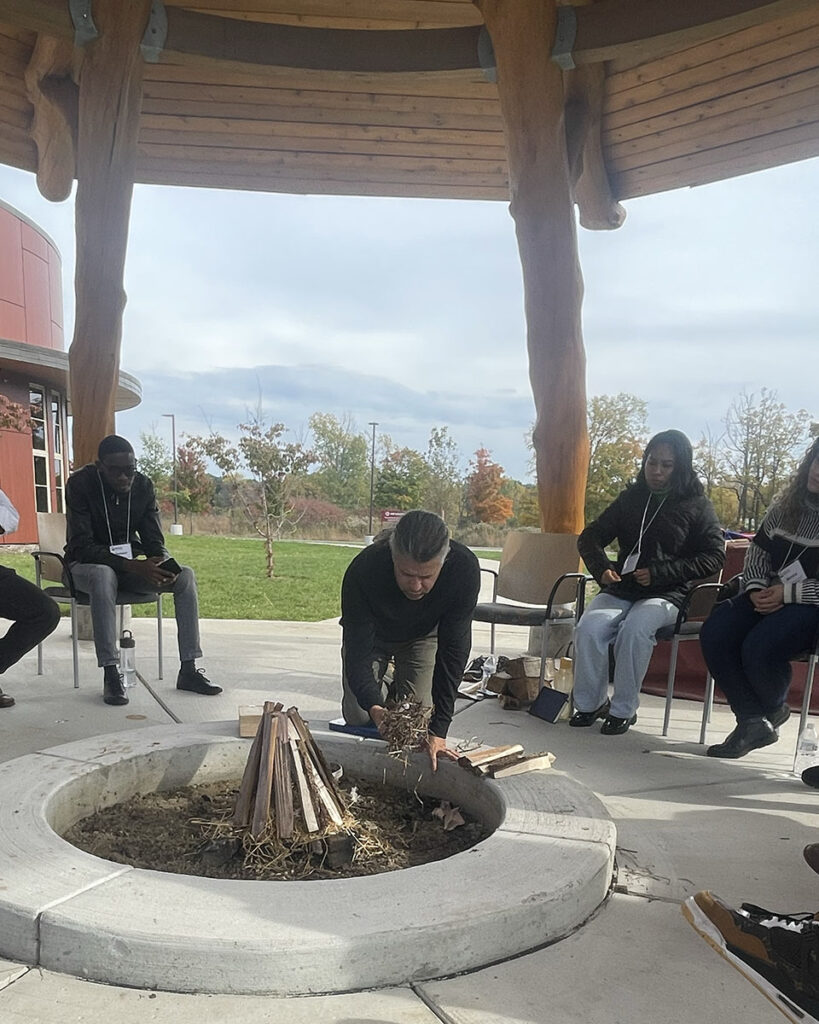
Negalegne Mequanint Mandefiro, a master of global affairs student from Ethiopia, said he was amazed by the Women’s College Partnership educators and students, and touched and inspired by the stories of South Bend’s forgotten Black baseball teams in the Foundry Field murals. The visit to the Pokagon Band’s Peacemaking Center was relatable to him in a surprising way.
“As a person who came from a beautiful country with a rich historical past, unfortunately going through a protracted conflict, the center’s peacemaking circle resonates with my home community’s generations-old culture of solving disputes through coffee ceremony circles,” he said.
Benson Kinyanjui, an architect from Kenya who’s pursuing a master of science in historic preservation, said the institute’s focus on restorative justice had a profound effect on how he will approach his work in the future.
“I was able to discover that restorative justice shows equal concern to the victimized as well as the offender, taking a healing and transformative approach to justice, with the hope to reduce likelihood of future offenses,” Kinyanjui said.
“This has taught me to show humility and respect to all individuals equally, and foster the design of urban architectural interventions that are not from a point of authority, but from a point of community,” he said. “Going forward, my approach to teaching and research in my field shall prioritize the history, identity, and needs of the community so as to provide recommendations that cater to their inherent needs in an egalitarian way.”
Learn more about the Graduate Institute for Engaged Teaching and Research.
Related Stories
-
Bringing a just peace to Ukraine—Shanahan co-leads new project with Ukrainian Catholic University
-
Summer of Social Concerns—students engage in justice research around the globe
-
Printmaking history—the institute partners with community to celebrate South Bend’s Latino heritage
-
Forming character through friendship—Virtues & Vocations conference promotes human flourishing in professional education
-
Go be justice—Sending off graduates to work for the common good

